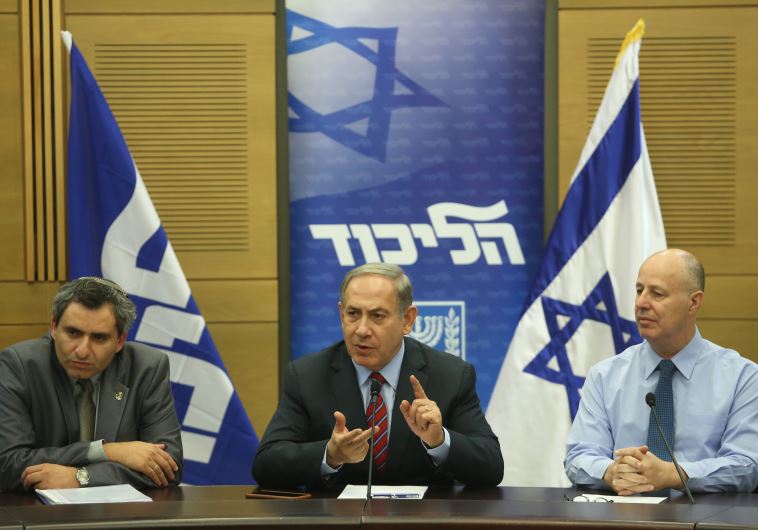Candidates preparing for a post-Netanyahu era that might not be near
Future candidates for PM are jostling for position, preparing for a post-Netanyahu era that might not be near.
 Netanyahu speaks at Likud faction meeting(photo credit: MARC ISRAEL SELLEM/THE JERUSALEM POST)
Netanyahu speaks at Likud faction meeting(photo credit: MARC ISRAEL SELLEM/THE JERUSALEM POST)